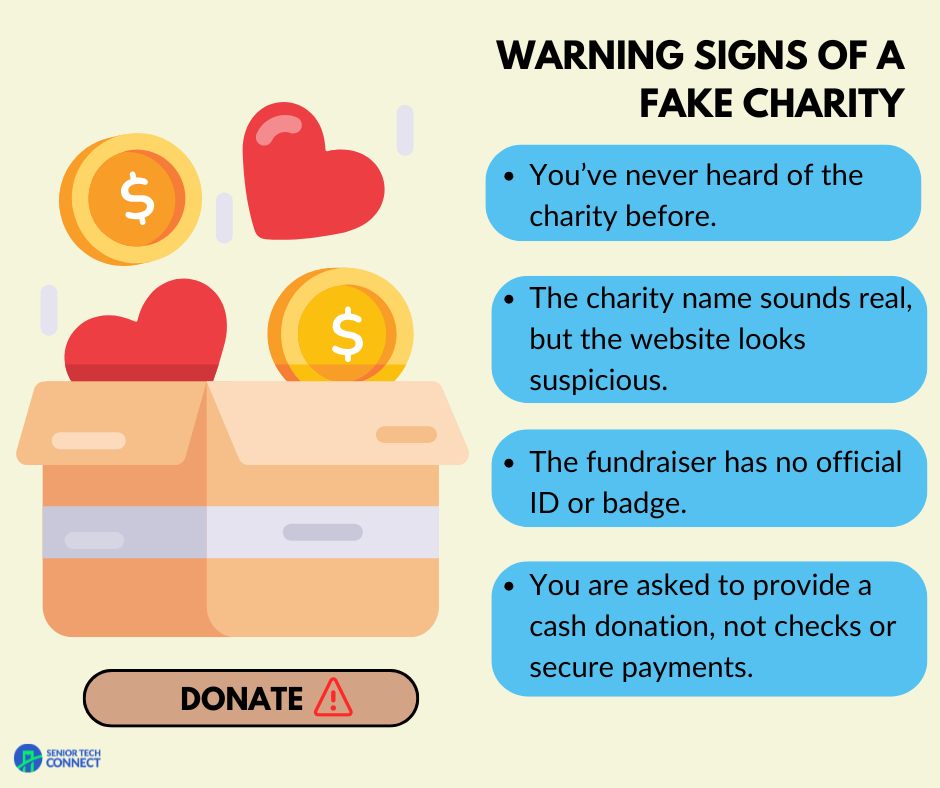Holiday Tech Scams to Avoid in 2025 (Fake Deliveries, Gift Cards & More)
The holidays bring joy — family gatherings, gift exchanges, and plenty of online shopping. But in 2025, scammers are more sophisticated than ever. From AI voice cloning to fake delivery alerts, older adults are increasingly targeted.
At Senior Tech Connect, we’re here to help seniors stay confident and safe online. This guide highlights the top holiday scams of 2025 and shows you how to avoid them.
1. Fake Package Delivery Scams (The #1 Scam of 2025)
Scammers send texts or emails pretending to be USPS, UPS, Amazon, or FedEx.
Message example: “Your package is waiting. Confirm your address here.”
The link leads to a fake site that steals personal information or infects your device.
How to stay safe:
Don’t click delivery links from texts
Track packages directly in official apps
Block suspicious “package update” numbers
2. Gift Card Scams
Scammers impersonate family members, charities, or even doctors’ offices, urgently asking you to buy gift cards and share the numbers.
⚠️Red flag rule: If someone asks for gift cards as payment — it’s always a scam.
How to stay safe:
Hang up immediately
Never share gift card numbers
Report scams to the store where cards were purchased
3. AI Voice-Cloning Scams (A 2025 Growing Danger)
Scammers now use AI to imitate your loved one’s voice perfectly.
They may call and say:
“Grandma, I’m in trouble. I need money now.”
How to stay safe:
Hang up
Call the person directly on their known number
Set a “family password” for emergencies
4. Fake Charity & Holiday Donation Scams
Scammers take advantage of the giving season with fake holiday fundraisers.
How to stay safe:
Only donate through well-known charities
Avoid donating through email links
Look for a .org website and check review
5. Fake “Family & Friends” Holiday Email Scams
Look out for emails claiming:
A distant relative needs help
You’ve won a holiday prize
Your account has been suspended
These are designed to make you panic and click on dangerous links.
How to stay safe:
Don’t open attachments from unknown senders
Call the company/person directly to confirm
Use strong spam filter
6. Romance + Holiday Loneliness Scams
Scammers prey on holiday emotions, pretending to form romantic connections before asking for money.
How to stay safe:
Never send money to someone you haven’t met in person
Video chat before trusting anyone online
Talk to a trusted family member
Senior Tech Connect Safety Tips
Use strong passwords & 2-factor authentication
Keep devices updated
Screenshot suspicious messages
Never click unfamiliar links
Join Senior Tech Connect webinars for hands-on guidance
Check out more content from us!
In this webinar clip, our team breaks down the rise of AI-powered scams and shares practical tips to keep yourself safe online. From fake voices to convincing holiday shopping schemes, we show you how to spot red flags and protect your personal information. It’s part of our ongoing series designed to empower seniors and families with clear, confidence-building tech guidance.


